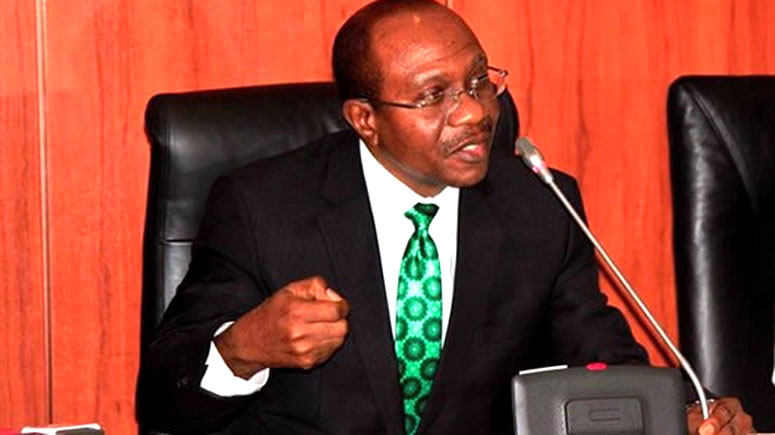EXPERTS in the nation’s financial sector have identified gaps in the set objectives by the Central Bank of Nigeria (CBN) to significantly reduce the number and percentage of adult Nigerians who are excluded from the formal financial system of the country.
At the inaugural conference of Oriental News Nigeria with the theme, ‘Engaging with critical groups to develop effective financial inclusion initiative,’ which held last week at the Sheraton hotel Ikeja Lagos, Dr Uju Ogubunka, CEO Bank Customers Association of Nigeria, said that the financial inclusion policy of the Federal Government which commenced in 2012 is geared towards ensuring that no Nigerian is short changed in its financial intermediations policies and economic development plans.
Ogubunka said that the government, out of the 84 per cent financially excluded population then, targeted to achieve 20 per cent financial inclusion by year 2020.
“The adult population has now increased above 84 per cent and the unbanked population has also increased remarkably. If the people are outside the financial system, the economy will not develop,” Ogubunka stated.
He explained that financial inclusion commences with opening a bank account, which factors in the account holder towards benefiting from all forms of government’s financial support as the account drives all other transactions of the account holder.
Also, to have insurance policy, investment accounts in the capital market, pension accounts and all forms of life and business enabling transactions driven only by the nation’s financial system, individuals need to be financially included, he stressed.
“As some of us will remember, the CBN initiated the National Financial Inclusion Programme in 2012 that is, about a decade ago. The programme is a response to the discovery from a study in 2010 that about 39.2 million or 46.3 per cent of the then 84.7 million adult population in the country were excluded from the formal Nigerian financial system.
“That meant that 45.5 million or 53.7 per cent of the 84.7 million were included in the system. It was also noted that of the excluded 39.2 million adult Nigerians, about 21.3 million or 54.4 per cent were females; meaning that about 17.9 million (i.e. 45.6 per cent) were males.
“Consequent on the foregoing, the CBN saw the need to redress it. Thus, it floated the financial inclusion programme and supported it with a strategy document tagged ‘National Financial Inclusion Strategy’ that encapsulated, among many other things, the Strategy Objectives, Strategy Stakeholders and their Interests, and Key Financial Inclusion Targets. The initiative targeted a reduction of the rate of the excluded from 46.3 per cent to 20 per cent come year 2020. ( i.e. a reduction of 26.3 per cent), meaning that the percentage of the included would rise to 80 per cent from 53.7 per cent within the same period.”
He said, Stanmeg Communication, publishers of Oriental News, Nigeria, have provided the platform for the audience to brainstorm and contribute towards achieving total inclusion of all eligible adult Nigerians in the financial system in order to drive and attain higher growth and development in both the financial system and the national economy, for the benefit of all Nigerians.
The guest speaker, Mallam Garba Kurfi, Managing Director APT Securities and Funds Limited, buttressed that financial inclusion policy of the government helps to ensure that funds that could have been deployed for entrepreneurial initiatives don’t end up in cupboards at homes.
Mallam Kufre, who was represented by the Managing Director/CEO ARMs Securities Limited, Mr Rotimi Edu, in his presentation, said that the government is recording remarkable progress in the financial inclusion target, adding that more hands are on deck to ensure that economic advantage of the country’s large population translates to financial benefits to the people and institutions.
The government, he stated, has designed financial support initiatives for rural women, artisans, petty traders, the financially disadvantaged, which can only be extended to only people who operate bank accounts.
He said that funds are aggregated through savings in banks, investments in capital markets or taking policies in insurance companies, such funds are further deployed to catalyse economic development through lending or for institutional growth.
In her opening address, Editor, Oriental News Nigeria, Mrs Yemisi Izuora, said that the conference was conceived by Stanmeg Communications, publishers of Oriental News Nigeria after a painstaking study of the progress and prospects of the financial inclusion policy in the country since inception in 2012.
“The conference is being organised given that in the past couple of years, the Federal Government and stakeholders in the financial sector have had to deal with expanding financial services to a large community of underserved population and dealing with resilience challenges brought about by confluence of events that have taken place,” Izuora stated.
Executive Director, Centre for Citizens with Disability (CCD) David O. Anyaele, however, called on the Federal Government as well as the Central bank of Nigeria (CBN) to expand the nation’s financial inclusion policy to include provisioning for the disabled people in the society.
He bemoaned the sustained lack of considerations for the disabled in the Nigerian financial system through different kinds of neglect and rights denials.
Anyaele stated that audits of bank branches across the country showed the total absence or lack of access and convenience facilities for the disabled.
He admonished prevailing attitudes of the financial systems against the disabled, describing it as major institutional barrier to financial inclusion
WATCH TOP VIDEOS FROM NIGERIAN TRIBUNE TV
- Let’s Talk About SELF-AWARENESS
- Is Your Confidence Mistaken for Pride? Let’s talk about it
- Is Etiquette About Perfection…Or Just Not Being Rude?
- Top Psychologist Reveal 3 Signs You’re Struggling With Imposter Syndrome
- Do You Pick Up Work-Related Calls at Midnight or Never? Let’s Talk About Boundaries







